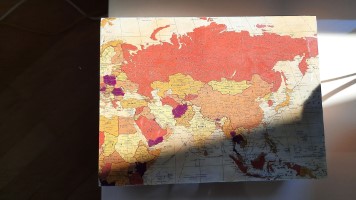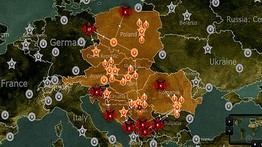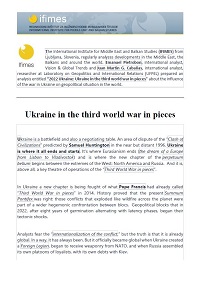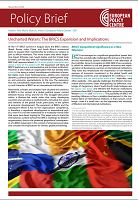Author(s): Ana-Maria Skaricic / Language(s): English
At the 15th BRICS summit in August 2023, the BRICS nations (Brazil, Russia, India, China, and South Africa) announced plans to expand their membership by inviting six nations to join as official members. This move means that when Argentina, Egypt, Ethiopia, Iran, Saudi Arabia, and the United Arab Emirates, join the bloc with full membership in January 2024, BRICS will represent about 46.5% of the global population and about a third of the global GDP. The expansion will likely aid BRICS’ legitimacy as a representative and inclusive institution. However, it also makes an organisation that has already been criticised for being a varied, miscellaneous collection of member-states, even more heterogeneous, adding new regional dynamics, political governance structures, development stages, and economic specialisations to the mix. The expansion thus has considerable implications for the governance, efficacy, and character of BRICS as an international institution.
More...




















